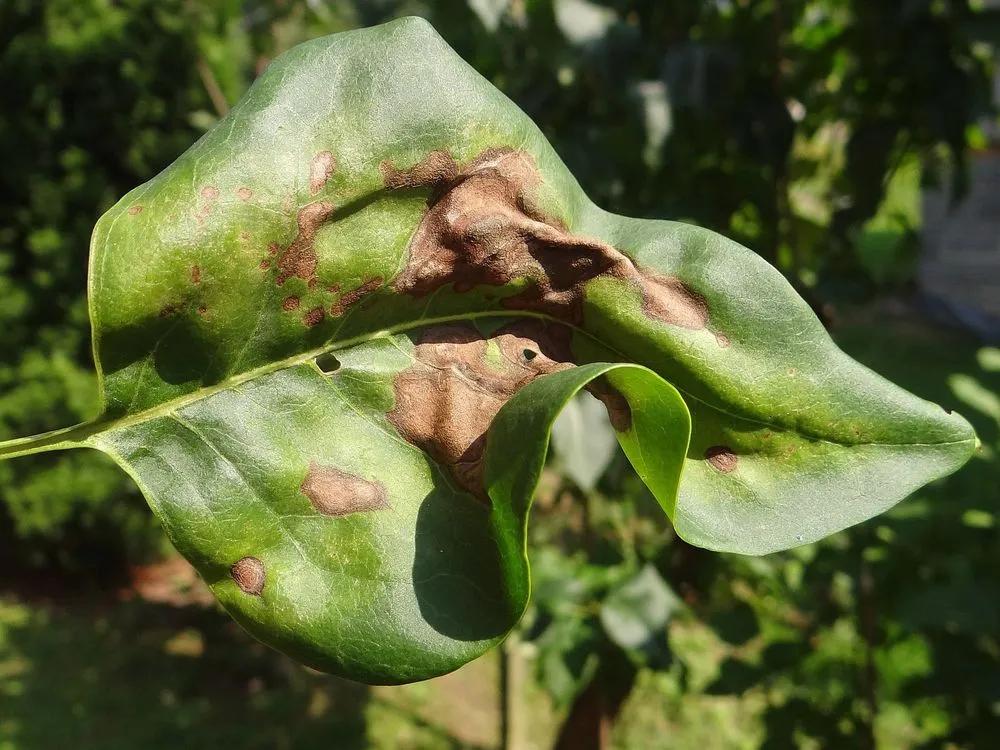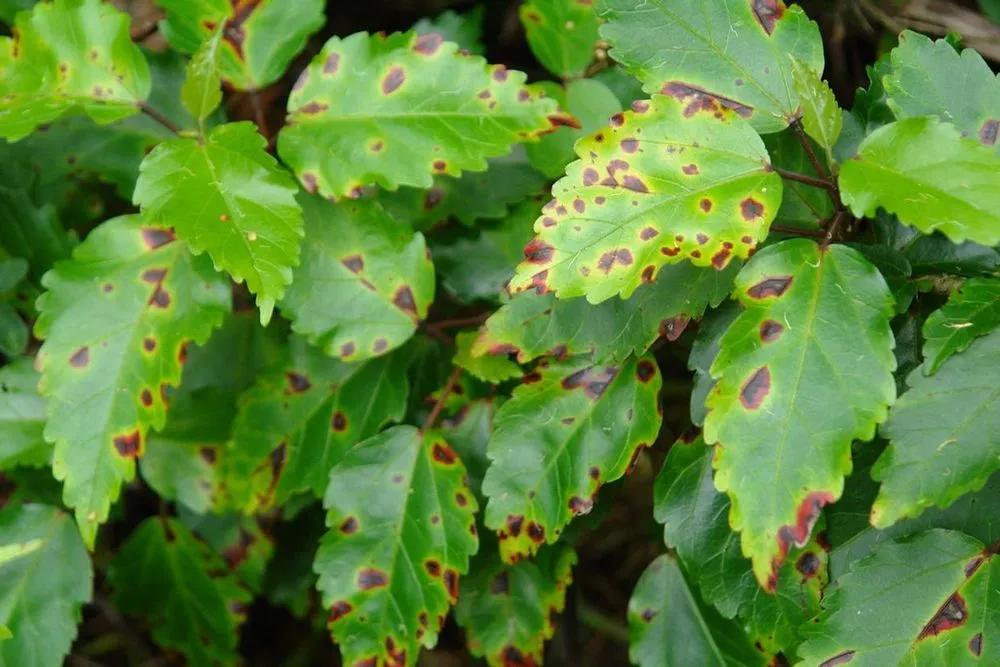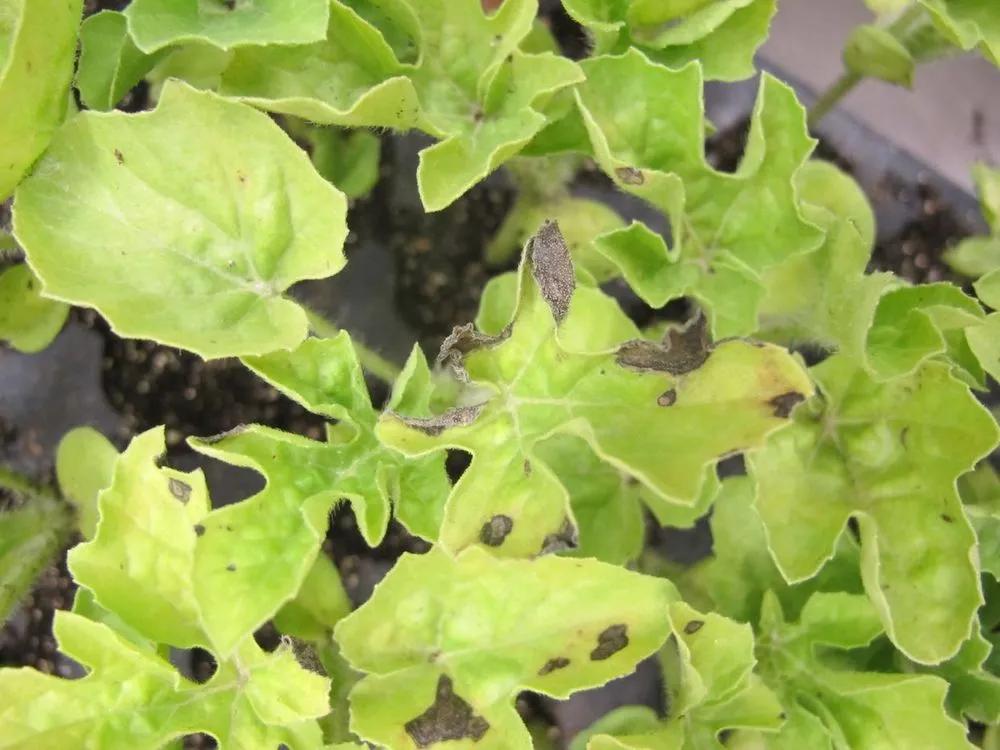Pseudomonas is a genus of bacteria that contains 191 known species. It contains a wide range of different types of bacteria, from plant and soil pathogens to plant growth promoters that have wide occurrence in water and plant seeds. The pathogenic species can colonize a wide range of hosts, with some causing major agricultural losses. One of the most common ones is Pseudomonas syringae, which primarily affects woody plants, especially those already damaged by injuries or frost. Some of the known hosts are magnolias, dogwood, fruit-bearing trees like apples, kiwis, and cherries, and some herbaceous plants. These bacteria cause tissue damage and produce toxins, killing cells and using them to multiply. They also produce a protein that allows ice crystals to form, leading to pierced tissue and damaged cells. It is spread worldwide and is an important threat to agroforestry practices.
Pseudomonas In Plants



Signs of damage
- Cankers.
- Flower blights.
- On lilacs: Lilac leaves develop brown spots, round to irregular-shaped with yellow borders. Twigs will also die and turn black.
- On maples: Some maple species will experience leaf spotting, blackened veins, and death of branch tips.
- Frost damage. Due to the ability to promote the appearance of ice crystals.
- Dieback.
How to prevent
Pruning should take place in winter and early spring to ensure the plant doesn’t have open wounds or injuries during the growing season. Proper sanitization of tools when handling plants will reduce the risk of infections.
Avoid choosing susceptible plants for frost-prone areas, and choose species that are resistant to these bacteria when possible.
Fertilization also shouldn’t be employed if it will create succulent growth in early spring.
Heal
There is no guarantee that healing can occur since only a few bactericides are known to reduce populations. These are mostly cooper sprays, but they are known to damage young plant tissue, and some species of Pseudomonas have grown resistant to them.
Go Premium to continue reading
Also you’ll get unlimited access to disease identification and all the other beneficial features
More problems
